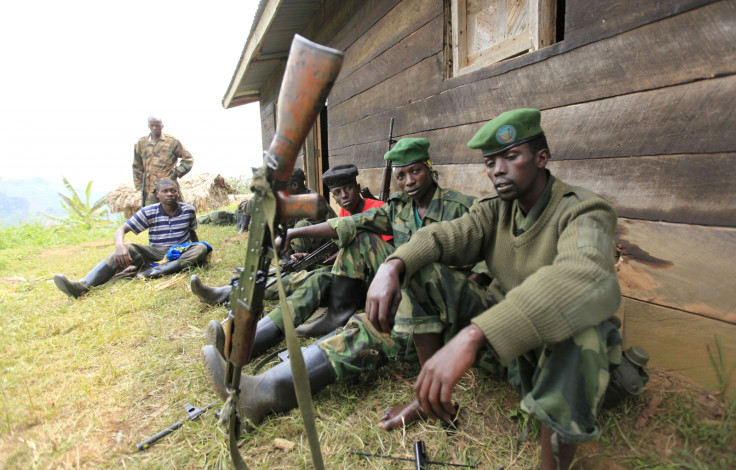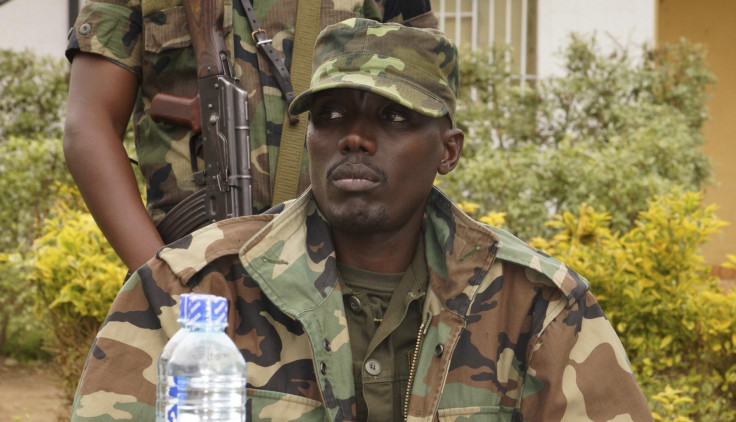M23 rebels 'kidnapped, tortured and killed' DRC army helicopter crash survivors
Clashes between army and infamous General Sultani Makenga confirm M23 revival in the country.

Officials of the Democratic Republic of Congo (DRC)'s armed forces have said that the two military helicopters that crashed over the weekend had not been attacked by a once-powerful rebel group in the country, but confirmed their active presence on Congolese soil.
The 27 January crash of the military helicopters near Rushuru, a town located in the strife-ridden eastern region of North Kivu province near the borders with Rwanda and Uganda highlighted fears of a potential revival of the M23 rebels, the former largest armed group in the country.
The crash came after 101 former Congolese rebels of the M23, who had fled the disarmament camps where they have lived in Uganda since 2013, tried to return to neighbouring DRC and were stopped by Ugandan authorities earlier this month.
The Armed forces (FARDC) commander of the third military region, General Leon Mushalé, on (Tuesday) 31 January described the circumstances of the double crash, denying the M23 were behind the incident.
Instead, Mushalé said during a press conference in Goma, the two helicopters were on routine patrol and allegedly crashed successively due to a "gust of wind" between two mountains. "They were not attacked (by M23)," Mushalé said.
The military commander, however, confirmed that a group of M23 fighters led by General Sultani Makenga, notorious military leader of the M23 rebels, from Uganda, were in the area at the time of the crashes.
Makenga had vanished from a camp for demobilised fighters in neighbouring Uganda on 11 November 2016. Following his escape, Ugandan services were not been able to locate him before Makenga returned to Congo.

On the flanks of Mount Mikeno, M23 military leader Makenga is reported to have sent several of his men to the site of the second crash, where he captured four crew members who survived the crash.
Two days later, the FARDC discovered an M23 position and clashes broke out, Mushalé said. While the commander said Makenga and his men escaped, four M23 fighters were killed in the assault. FARDC soldiers captured a young M23 fighter, Mushalé confirmed.
Upon inspection, FARDC soldiers allegedly discovered three bodies that had been stripped of their uniforms. Three men had been tortured and killed by Makenga, Mushalé claimed. In his escape Makenga is reported to have taken the fourth crew member.
The General would not confirm the nationality of the crew members. While the Embassy of Russia in Kinshasa denies the presence of Russian citizen in these helicopters, as previously reported, a diplomatic source quoted by RFI said the "instructor" captured by the M23 may be Georgian.
The Rwanda Defence Forces (RDF), meanwhile, said on Sunday (29 January) that a group of unarmed Congolese crossed into Rwanda through Rwanda-DRC common border, in Rubavu District, "claiming to be M23 rebels".
Previously operating as the biggest of a dozen armed groups in the country, M23, a mostly Tutsi-led rebel group, brought havoc to eastern DRC between April 2012 and November 2013 as it fought to control of swathes of land in the African nation's mining heartland. The group was accused of being responsible for a series of murders, rapes and forced recruitment of children.
The group was defeated in eastern DRC in late 2013, after a 20-month campaign led by the Congolese army and backed by thousands of UN fighters.
© Copyright IBTimes 2025. All rights reserved.






















